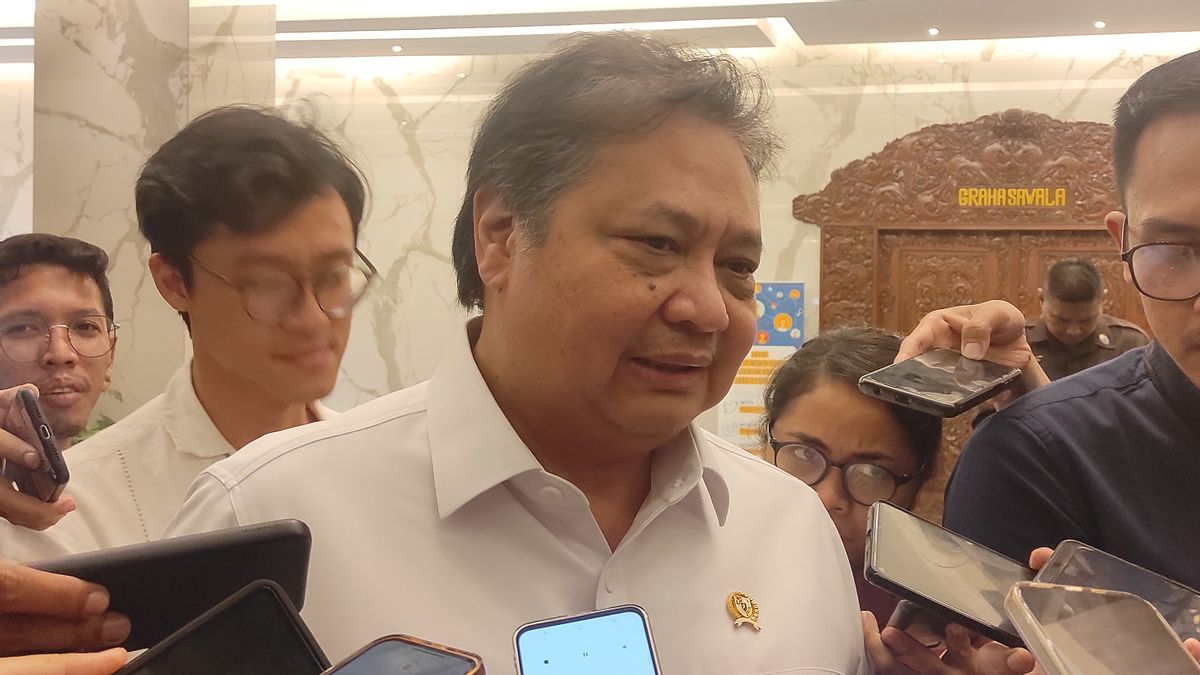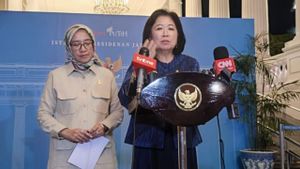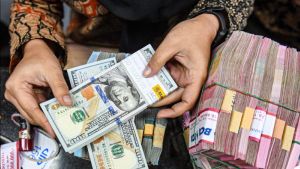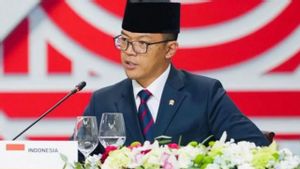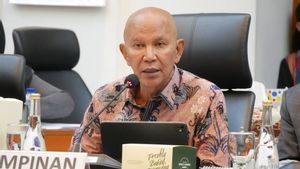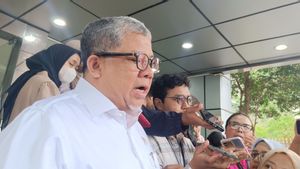JAKARTA - The government is preparing various fiscal policies for 2025 and is planned to be announced next week. Among them, the decision to increase Value Added Tax (VAT) is 12 percent.
This was conveyed by the Coordinating Minister for Economic Affairs, Airlangga Hartarto after holding a limited coordination meeting at his office when met by the media crew, Tuesday, December 3.
However, Airlangga has not been able to provide details regarding the decisions to be taken by the government, whether to continue to increase the VAT rate or postpone its implementation.
"It will be announced next week," he said.
Meanwhile, when asked again regarding the possibility of increasing Value Added Tax (VAT) to 12 percent, Airlangga explained that this was still in the discussion and simulation stage with the relevant ministries.
"It will be simulated first," he said.
Airlangga said that before it was announced next week, he would first report to President Prabowo Subianto regarding the results of the limited coordination meeting.
"Yes, we will report it later after the meeting is over," he said.
To note, the policy is contained in Law Number 7 of 2021 concerning Harmonization of Tax Regulations (UU HPP) in Article 7 paragraph (1), the 12 percent VAT rate is valid no later than January 1, 2025, after the increase in VAT rates from 10 percent to 11 percent in April 2022.
Airlangga explained that next week in addition to announcing decisions regarding the increase in VAT, 12 percent will also be announced regarding other fiscal policies such as the Sales Tax on Luxury Goods (PPnBM) for vehicles, incentives for Government-Borrowed Value Added Tax (PPN DTP).
We discussed several things related to fiscal that are being finalized. This year, for example, there is a PPNBM for automotive Then the DTP VAT for housing. Now this is being finalized. In a week, we will announce the policy for next year," he explained.
In addition, Airlangga said the Government would provide new incentives for labor-intensive industries to be announced next week.
"There are incentives for new initiatives, of course, we will see and we also discussed incentives for, for example, labor-intensive industries, for revitalization of machinery where we ask to be re-calculated, what kind of scheme is it like," he said.
According to Airlangga, the incentives provided for labor-intensive industries have competitiveness because if they are not competitive, they will certainly lose to industries that have just invested.
BACA JUGA:
On the other hand, Airlangga conveyed that regarding the purchasing power of the people who were increasingly eroded, the Government already had a planned social assistance program (bansos). "The people buy goods already have social assistance. So of course we will see again," he explained.
In addition, Airlangga said the government is also looking at global policies, such as the global minimum tax which will have an impact on investment incentives in Indonesia.
"We don't want multinational companies that get tax holidays in Indonesia to be taxed by the state. So, we are still seeing this," he added.
The English, Chinese, Japanese, Arabic, and French versions are automatically generated by the AI. So there may still be inaccuracies in translating, please always see Indonesian as our main language. (system supported by DigitalSiber.id)
